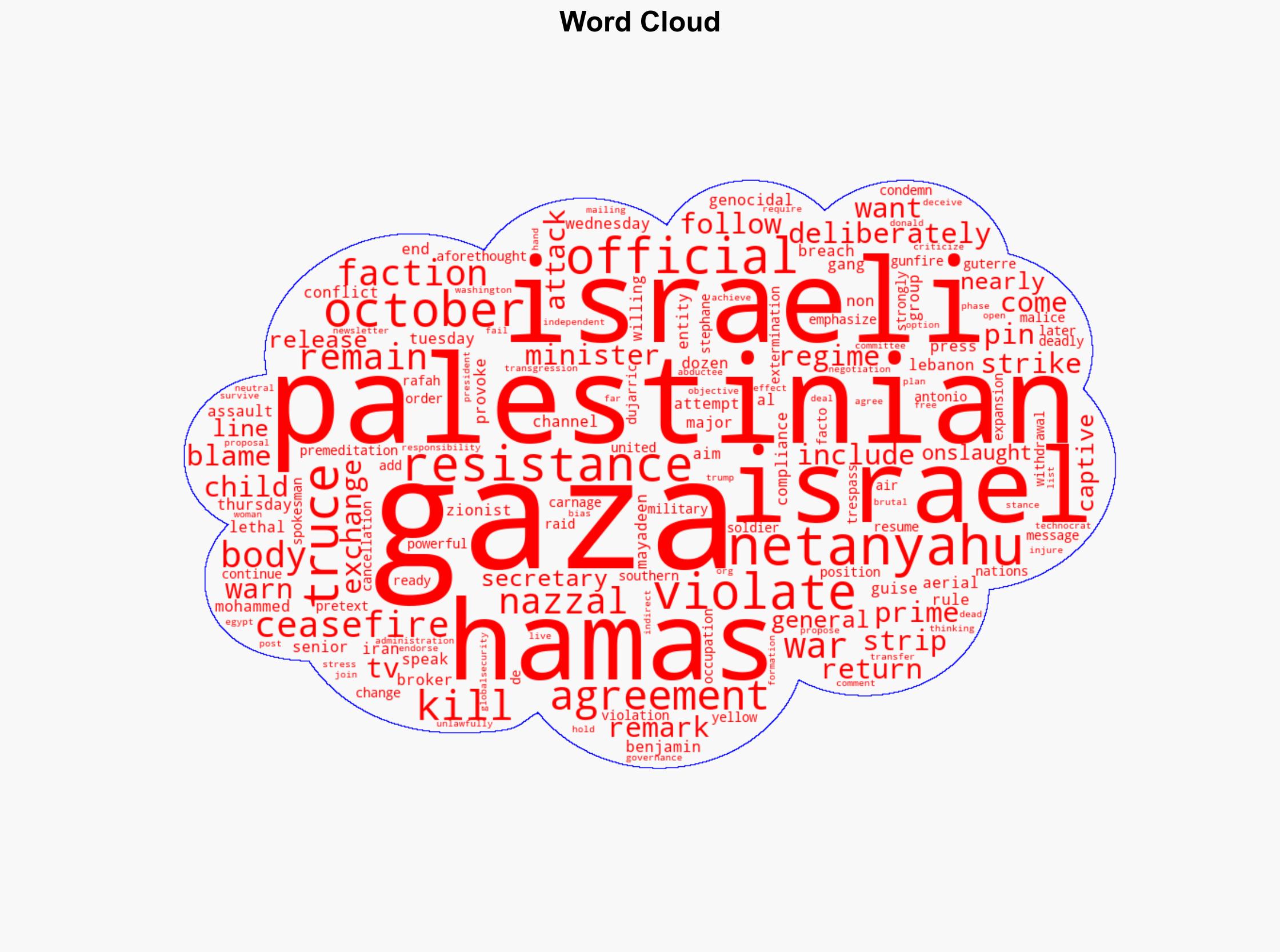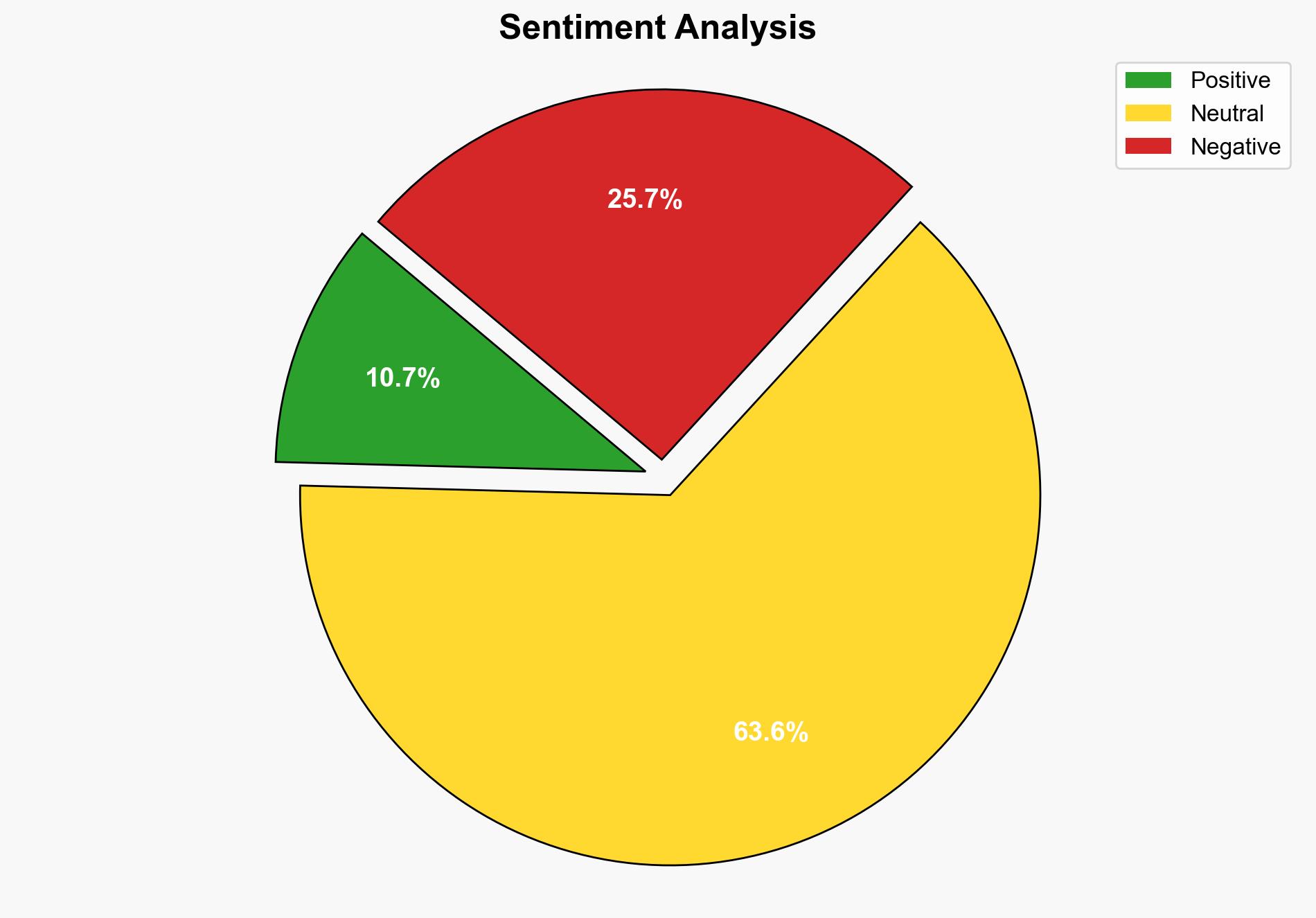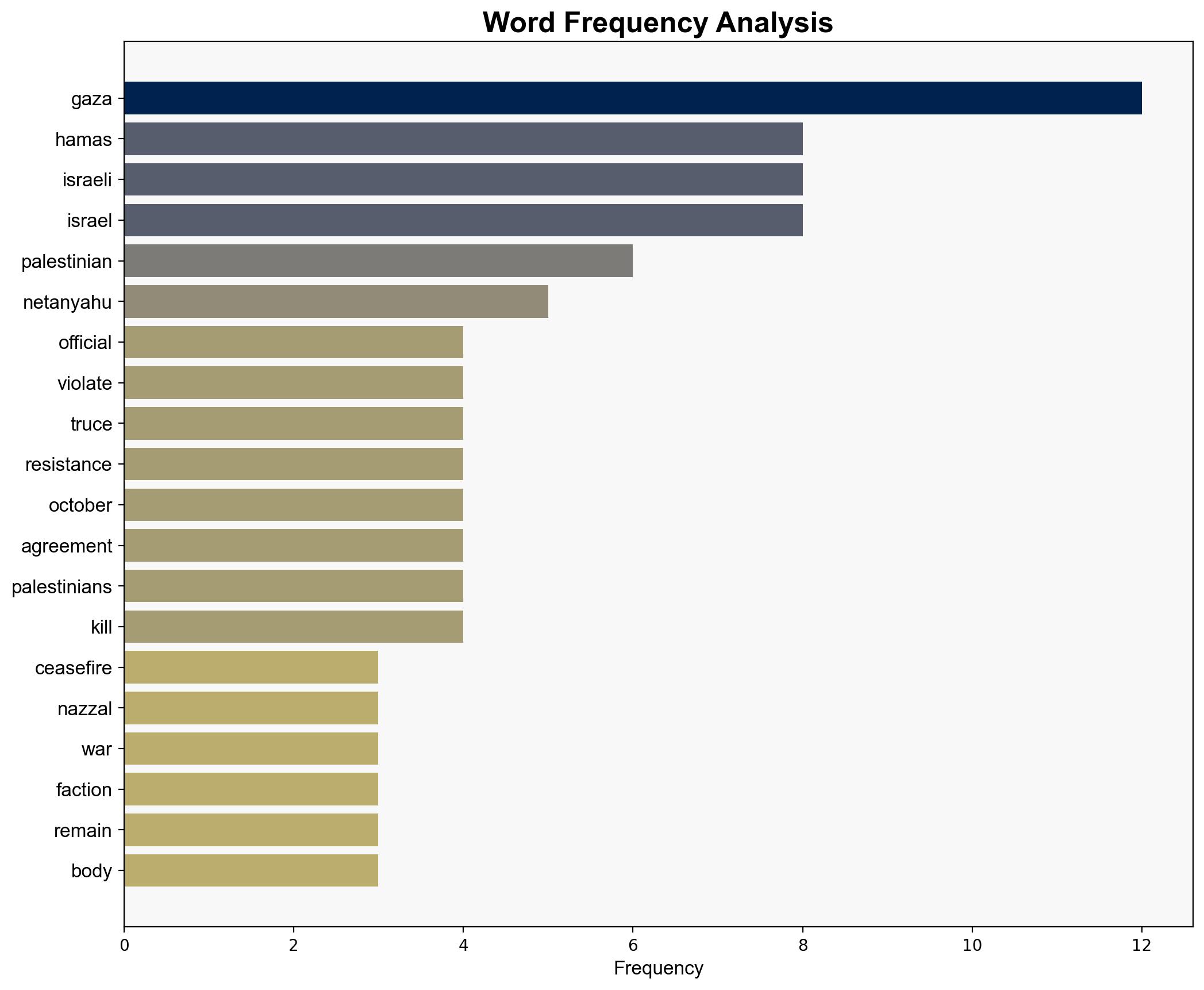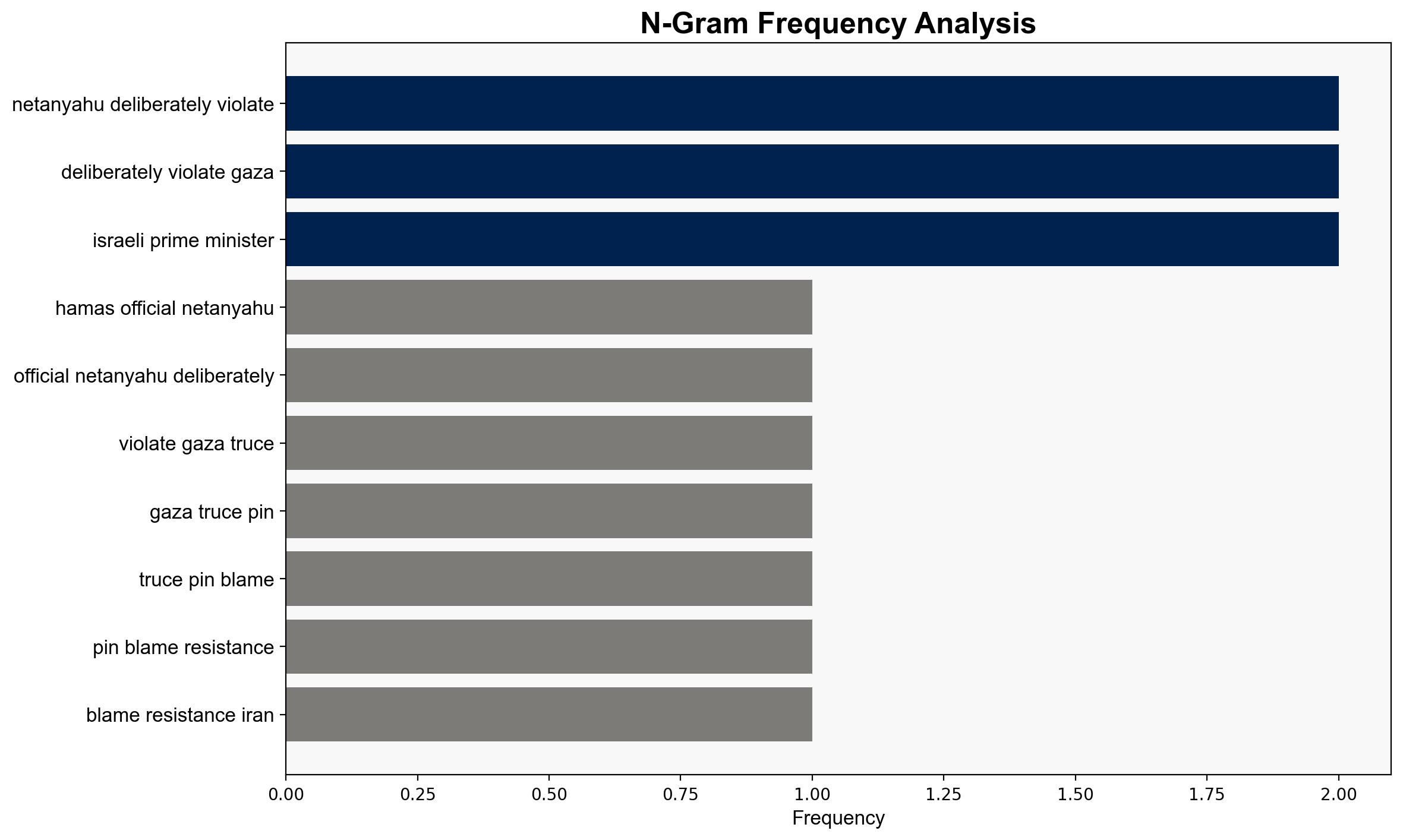Hamas official Netanyahu deliberately violating Gaza truce but pinning blame on resistance – Globalsecurity.org
Published on: 2025-11-01
Intelligence Report: Hamas official Netanyahu deliberately violating Gaza truce but pinning blame on resistance – Globalsecurity.org
1. BLUF (Bottom Line Up Front)
The most supported hypothesis is that the Israeli government, led by Netanyahu, is deliberately violating the Gaza truce to provoke a conflict, while attributing blame to Palestinian resistance. This hypothesis is supported by statements from Palestinian officials and the context of recent military actions. Confidence level is moderate due to the complexity of regional dynamics and potential biases in source reporting. Recommended action includes diplomatic engagement to de-escalate tensions and verification of ceasefire compliance through neutral parties.
2. Competing Hypotheses
1. **Hypothesis A**: Netanyahu is deliberately violating the Gaza truce to provoke conflict and justify further military action, while blaming Palestinian resistance to shift international perception.
2. **Hypothesis B**: The violations are a result of miscommunication or rogue elements within the Israeli military, with Netanyahu’s government attempting to maintain the truce but facing internal challenges.
Using ACH 2.0, Hypothesis A is better supported due to the alignment of reported statements from Palestinian officials and the pattern of military actions following ceasefire agreements. Hypothesis B lacks substantial evidence and contradicts the strategic interests of maintaining the truce.
3. Key Assumptions and Red Flags
– **Assumptions**: Hypothesis A assumes intentionality and strategic calculation by Netanyahu. Hypothesis B assumes operational disarray within the Israeli military.
– **Red Flags**: Potential bias in source reporting, as statements are primarily from Palestinian officials. Lack of corroborating evidence from independent or Israeli sources.
– **Blind Spots**: Limited insight into internal Israeli decision-making processes and potential external influences on both parties.
4. Implications and Strategic Risks
– **Escalation Risk**: Continued violations could lead to broader conflict, drawing in regional actors and complicating international diplomatic efforts.
– **Geopolitical Impact**: Strained relations between Israel and neighboring countries, potential shifts in alliances.
– **Psychological Impact**: Increased radicalization and recruitment by extremist groups exploiting the narrative of victimization.
5. Recommendations and Outlook
- Engage in multilateral diplomatic efforts to reinforce the ceasefire and establish a monitoring mechanism involving neutral parties.
- Encourage confidence-building measures between Israel and Palestinian factions to reduce miscommunication and mistrust.
- Scenario Projections:
- Best: Successful reinforcement of the truce leading to long-term stability.
- Worst: Full-scale conflict with regional spillover effects.
- Most Likely: Continued sporadic violations with intermittent diplomatic interventions.
6. Key Individuals and Entities
– Benjamin Netanyahu
– Mohammed Nazzal
– Antonio Guterres
7. Thematic Tags
national security threats, regional focus, conflict escalation, diplomatic intervention





